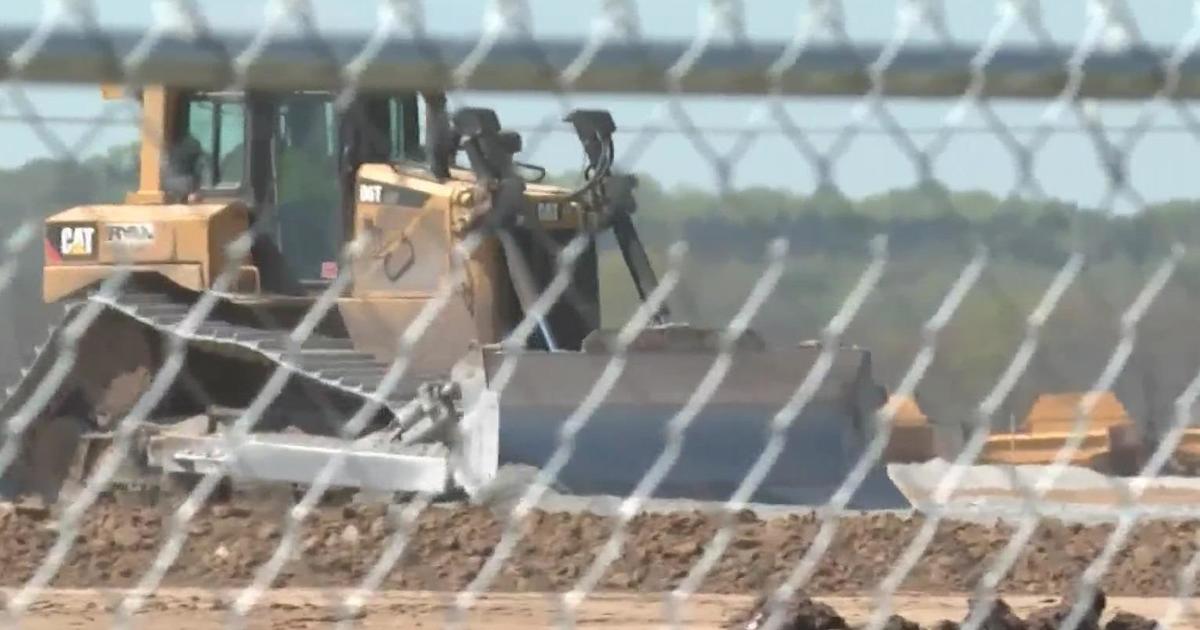ArcelorMittal Steel Plant In Indiana Accused Of Manipulating Test Results In Wake Of Chemical Spill
BURNS HARBOR, Ind. (CBS) -- Indiana state regulators say the ArcelorMittal steel plant in Burns Harbor has been manipulating test results, following a toxic chemical spill that killed 3,000 fish in the Little Calumet River last summer.
In a letter to the company, the Indiana Department of Environmental Management said ArcelorMittal has made a practice of redoing tests that showed violations, and using the new tests to replace those results, sometimes after they already had been reported to the state.
"This practice is not allowable," IDEM Deputy Director Rick Massoels wrote in the letter.
State authorities said the practice "undermines the integrity" of the test results ArcelorMittal submits.
"If ArcelorMittal Burns Harbor maintains that it cannot credibly report noncompliant results based upon one analysis of a given sample (that passes all quality assurance/quality control checks), then IDEM cannot feel confident in compliant results reported by ArcelorMittal Burns Harbor that are based on one analysis of a given sample (that passes all quality assurance/quality control checks)," Massoels wrote. "ArcelorMittal's self-monitoring program is either capable of generating valid results based upon one analysis of a given sample or it is not."
"They have concerns that, if you will, the data was sort of cooked," said Howard Learner.
Learner heads the Environmental Law & Policy Center - one of the groups that sued the steelmaker in the wake of this past summer's spill.
He said the testing issues are only part of their concern.
"This isn't a one-off. It's not like there was an accident at one point," Learner said. "There's been a series of discharges that exceed the permit levels."
IDEM noted other tests at the plant found unacceptable amounts of ammonia and cyanide in water discharged from one of the plant's outfalls. ArcelorMittal also has been unable to determine the source of the cyanide and ammonia coming from that outfall.
"There are concerns that an unpermitted wastewater stream is entering Lake Michigan," Massoels wrote.
[scribd id=442044809 key=key-oijAIRyogAx467feZ9Us mode=scroll]
An ArcelorMittal spokesperson denied manipulating data.
"We use certified, independent laboratories to analyze samples and we report the data, including any corrected data, from the labs to the regulatory agencies consistent with industry and laboratory standards. ArcelorMittal has a track record of providing accurate sampling data to the agencies," the company stated in an email.
ArcelorMittal said it has been cooperating with IDEM and the U.S. Environmental Protection Agency for months since the spill in Burns Harbor in August.
"The August event related to the primary water discharge point at the mill. We sample this water on a daily basis and the mill has been in compliance with our cyanide and ammonia limits every day since the August 2019 event concluded. These NPDES [National Pollutant Discharge Elimination Systems] permit effluent limitations are issued by the State to be protective of human health and the environment," the company stated in an email.
In August, around 3,000 fish in the Little Calumet River were killed by a cyanide and ammonia spill from the plant. The river feeds into Lake Michigan.
In October, a report from IDEM revealed ArcelorMittal missed warning signs a week before the spill.
The state accused ArcelorMittal of committing seven violations of its permit – including for the spill itself, failing to promptly notify the state, failure to properly maintain the plant, and failing to minimize the effect of the spill.
The October report from IDEM said there were warning signs more than a week before the spill, when a water-damaged battery system failed on Aug. 4.
The report said "there was no alarm in place to alert operators that the battery ceased recharging."
That same battery system had more problems on Aug. 11, causing more equipment failures and, ultimately, the spill of hundreds of pounds of cyanide over the next few days.
The steel giant didn't mention the equipment problems to the state until Aug. 14, and even then, the company told the state it "did not believe that the issue was impacting its discharges."
The company finally reported the spill to the state on Aug. 15. ArcelorMittal told CBS 2 in August that it didn't tell the state right away because they were waiting on definitive test results.



